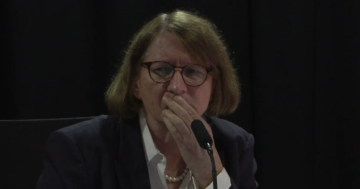NORTHERN IRELAND
 Northern Ireland’s Renewable Heat Incentive (RHI) scheme, which led to the collapse of the Province’s Government, was a “project too far” and “should never have been adopted”, the report of a public inquiry has found.
Northern Ireland’s Renewable Heat Incentive (RHI) scheme, which led to the collapse of the Province’s Government, was a “project too far” and “should never have been adopted”, the report of a public inquiry has found.
The scheme, which opened in 2012, paid businesses to switch from oil and gas to environmentally-friendly heating.
The RHI scheme closed to new entrants in 2016 amid concerns about the potential cost. It was followed by the collapse of the power-sharing administration amid mutual recriminations.
At that point Northern Ireland was administered by senior Public Servants for three years before the Government was finally reinstated earlier this year.
The 656-page report, prepared by former Appeals Court Judge, Sir Patrick Coghlin (pictured), heavily criticised Public Service management of the scheme stating there was a “compounding of errors and omissions over time and a failure of attention”.
The scheme was introduced by then Minister for Enterprise, Arlene Foster. Following the report’s publication, Mrs Foster, now the First Minister, repeated an apology for her “failings in the implementation” of the RHI scheme.
However, the inquiry found Mrs Foster was given inaccurate and misleading information.
Public Servants, and in particular the Department of Enterprise, Trade and Investment (DETI), came under heavy criticism.
The report found that at the development stage “insufficient care was taken within DETI to weigh properly the whole-life costs” of the scheme”.
A draft regulatory impact assessment presented to Mrs Foster in 2012 “lacked necessary cost information”.
“Basic administration and record-keeping, normally the bedrock of the Civil Service, was on too many occasions lacking within DETI,” the report found.
“This contributed to uncertainty as to what discussions had actually taken place.”
The report said that having embarked on the RHI scheme, DETI did not ensure that adequate resources and expertise were applied to its development.
“Those junior Civil Servants responsible for the scheme day-to-day, no matter how hardworking and well-intentioned, were consistently under-resourced,” the report said.
“They were not equipped with the necessary expertise, nor adequately supported.”
The report found that when problems were recognised, the actions of senior Public Servants were not good enough to ensure they were identified and addressed.
Belfast, 15 March 2020











